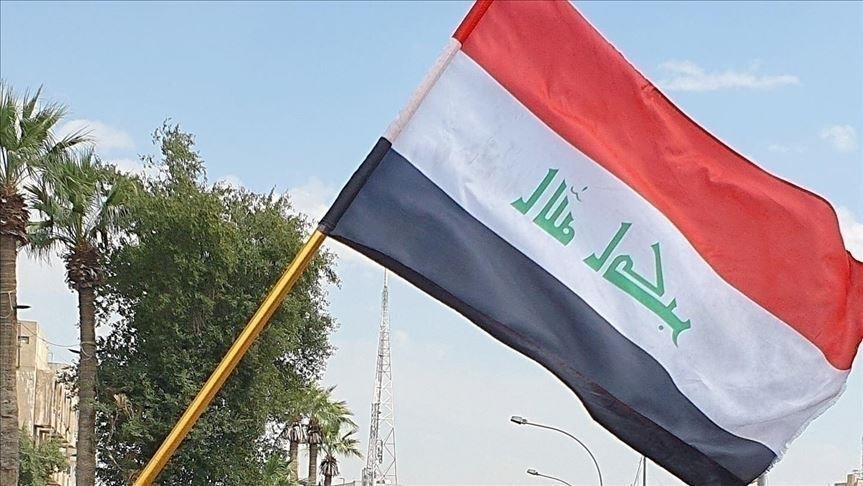Iraq’s Shia cleric al-Sadr likely to veto new candidate for premiership
Mohammed al-Sudani nominated by Coordination Framework as Iraq’s new prime minister

BAGHDAD
Iraq’s firebrand Shia cleric Muqtada al-Sadr and leader of the Sadrist Movement is likely to thwart the nomination of Mohammed al-Sudani as Iraq’s new prime minister, analysts say.
Al-Sudani, 52, was selected by the Coordination Framework, a coalition of Shia groups close to Iran, as a candidate for Iraq’s premiership. Concerns, however, grow that al-Sadr, whose movement won last year’s general elections, might veto his nomination.
Al-Sadr has already announced that he will not accept al-Sudani to form a new government, leaving him at the risk of a possible veto.
-Supporters of Al-Sudani
Al-Sudani, a former Minister of Labor and Social Affairs, was elected a member of parliament for three consecutive elections under former Prime Minister Nouri Al-Maliki’s State of Law Coalition.
He enjoys the support of former Prime Minister Haider al-Abadi as well as Ammar al-Hakim, the head the National Wisdom Movement and Qais Khazali, the leader of Asaib Ahl al-Haq - a powerful Shia faction.
The political wing of Iraqi Hezbollah and other militia leaders also showed their support for al-Sudani’s nomination for premiership.
The Patriotic Union of Kurdistan (PUK) also voiced support for the new prime minister candidate while the Kurdistan Democratic Party (KDP) led by Masoud Barzani and the Sovereignty Alliance, the largest Sunni bloc in Parliament, have not yet expressed their position on al-Sudani’s nomination.
Kurdish presidential dispute
Although an agreement has been reached among Iraq’s political forces regarding the prime minister candidate, there is still uncertainty about the presidency.
According to Iraq’s quota system, a Kurd is elected for the presidential post.
Arafat Karam, KDP Secretary General, has reiterated that Rebar Ahmed is their candidate for Iraq’s presidency. This statement shows that the Kurds have not yet agreed on a single candidate for the post.
Although some sources state that the KDP and PUK can agree on a common candidate, there are speculations that the PUK still insists on Barham Salih for the presidency.
If the Kurds field two separate candidates for a parliamentary vote, the scenario of 2018 may eventuate. At that time, KDP and PUK participated in the presidential race with separate candidates, and PUK's candidate, Barham Salih, won the race and became president.
Doomed to failure
"Prime Minister candidate al-Sudani will fail to form a government even if he does not face a veto from al-Sadr,” Iraqi political analyst Ahmet Yasiri told Anadolu Agency.
Yasiri attributed the prospected failure to a rift within the Coordination Framework that led to announcing al-Sudani as a candidate.
“The tripartite alliance comprising al-Sadr, KDP and Sunnis had prepared a program to form a government.
However, the Coordination Framework will need to negotiate a government program with the political groups by giving everyone a share in the Cabinet in order to be able to form a government,” Yasiri said.
Yasiri also pointed out that al-Sadr could also call his supporters to stage mass protests against al-Sudani, which could lead to street clashes.
In 2019, the Sadrist bloc staged mass demonstrations that led then Prime Minister Adel Abdul Mahdi to eventually resign.
"Even if al-Sudani’s government survives for one year, it will be overthrown by the street like Mahdi," the political analyst asserted.
Iraq’s to-be-elected president will assign the new prime minister with forming the government. The prime minister is obliged to present his Cabinet lineup to the Parliament within 30 days.
A quota was set up in Iraq by Paul Bremer, who was appointed head of the Coalition Provisional Authority (Iraq’s post-invasion U.S.-led interim government) in 2004.
The system is ostensibly aimed at ensuring fair representation with the post of president is reserved for a Kurd; that of prime minister for a Shia Muslim; and that of Parliament Speaker for a Sunni Muslim.
*Writing by Mahmoud Barakat








